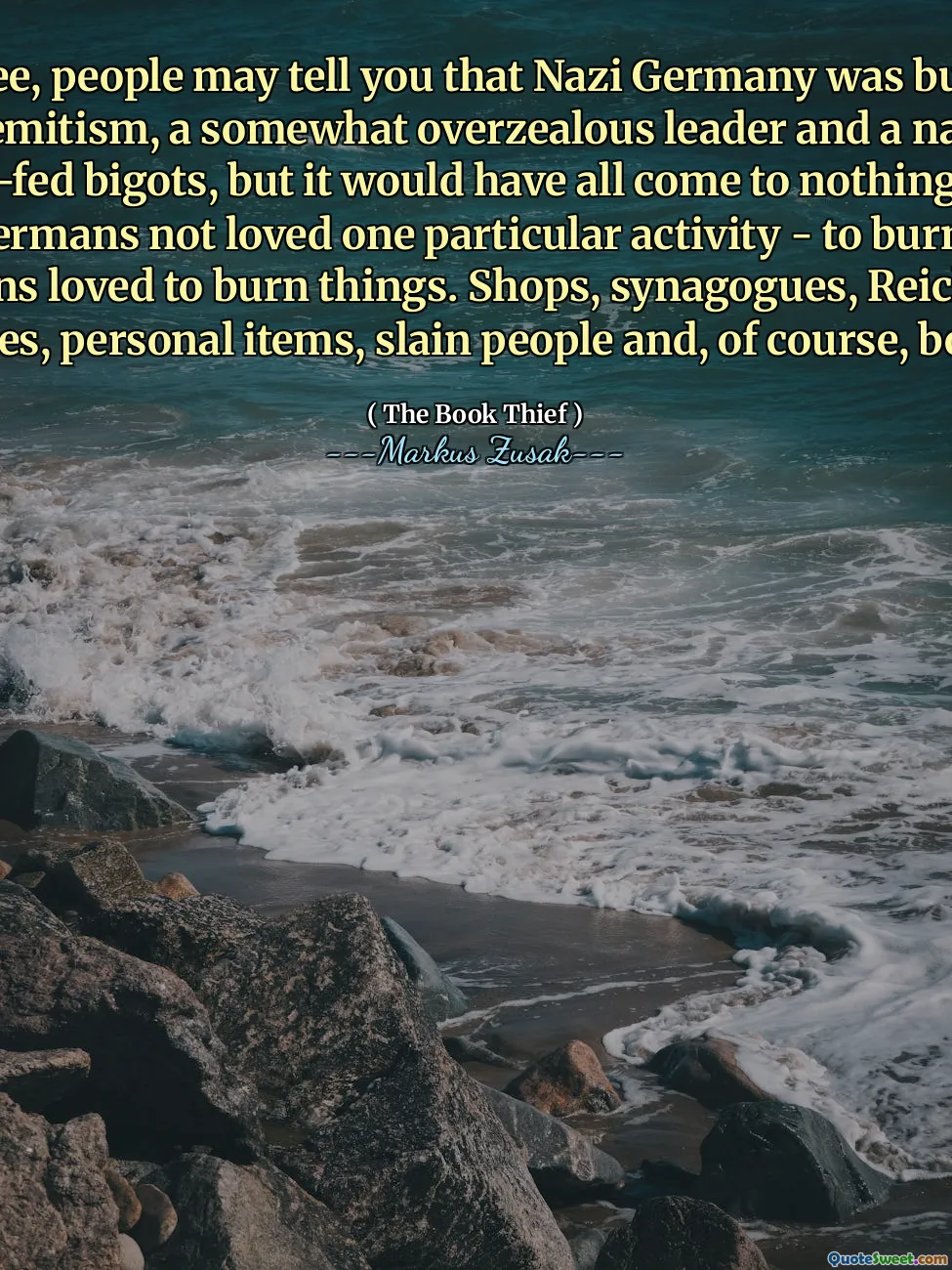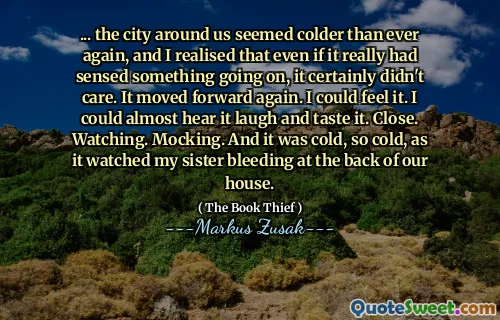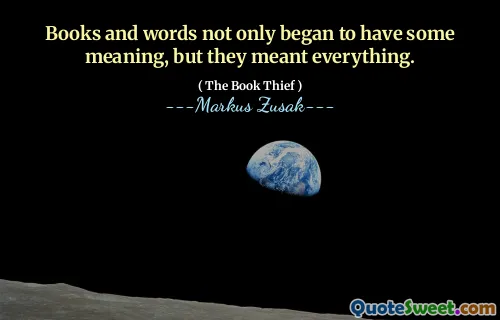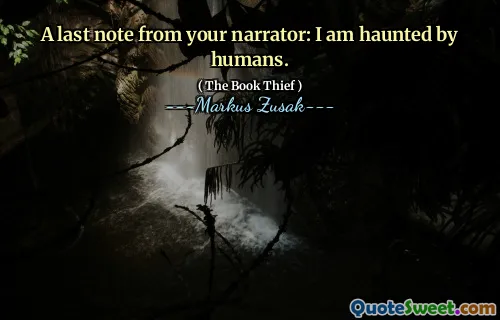
You see, people may tell you that Nazi Germany was built on anti-Semitism, a somewhat overzealous leader and a nation of hate-fed bigots, but it would have all come to nothing had the Germans not loved one particular activity - to burn. The Germans loved to burn things. Shops, synagogues, Reichstags, houses, personal items, slain people and, of course, books.
This quote offers a compelling reflection on the destructive nature of hatred and the role of symbolic acts of destruction in shaping historical atrocities. It emphasizes that while ideology and leadership are significant, the act of burning—an act of annihilation and erasure—serves as a powerful metaphor for the broader intentions of hatred to obliterate identity, culture, and memory. The imagery of burning shops, synagogues, and books underscores the deep desire not only to physically destroy possessions but also to eradicate the very essence of those targeted. Such acts serve as horrifying yet revealing acts of control and intimidation, aimed at demoralizing the community and suppressing its culture. Historically, book burning has been associated with attempts to erase ideas and dissent, symbolizing the suppression of free thought. This quote resonates as a reminder of the destructive potential of hate taken to its extreme, illustrating that violent ideologies often attempt to destroy what they fear or despise—be it physical monuments, cultural symbols, or the ideas contained within books. It invites introspection about the importance of safeguarding knowledge, diversity, and human dignity in the face of such destructive impulses. The reflection connects to broader themes of barbarism and the importance of resisting the forces that seek to dehumanize and obliterate difference, reaffirming that only through awareness and action can such tragedies be prevented.











